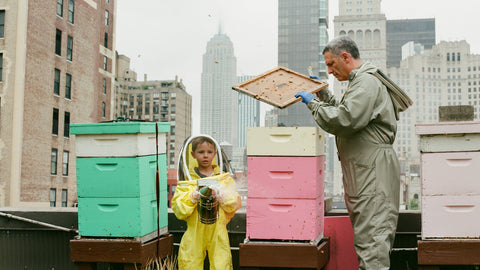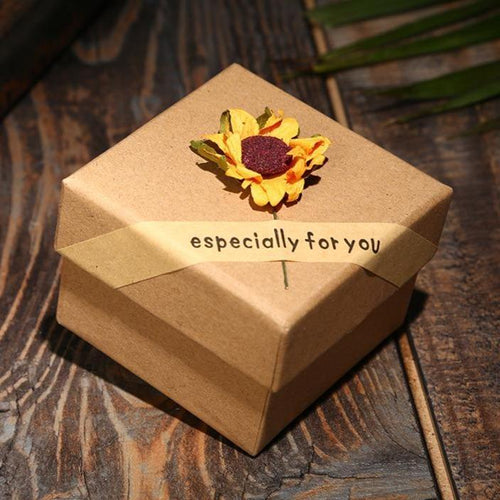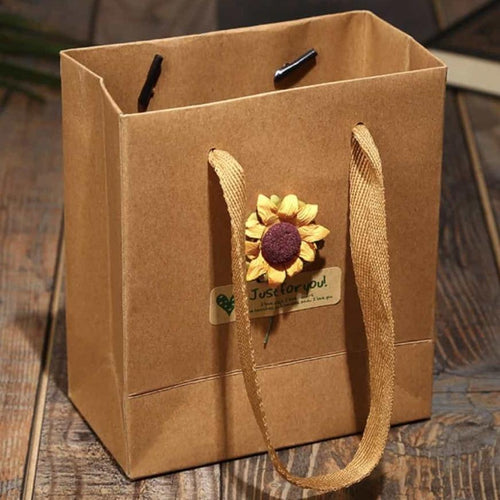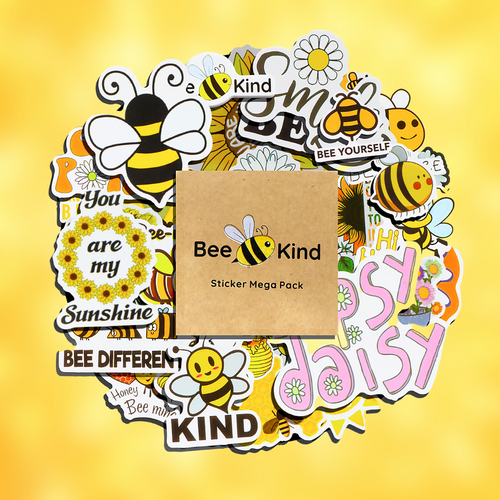Beekeeping is truly for everyone. Even if you live in a big fast-paced city, don’t have a backyard and never though about keeping bees.
In fact, the idea of urban beekeeping is becoming ever more popular and beekeeping in less-than-obvious locations can be more feasible than you may think.
Urban beekeeping is the practice of keeping bees in a town or city, without access to a large yard or the countryside.
The example of New York City
Did you know that there are millions of bees from thousands of active beehives buzzing around New York City?
Prior to a 2010 ruling, beekeeping existed in NYC, but only under the radar. Until that time, if caught, beekeepers faced fines of up to $2,000.
However, since 2010 beekeeping has been legalized. This made it easier for aspiring beekeepers as several organizations and services designed to help residents explore apiculture started to emerge.
Abel Nottinghamsher, a fourth-generation beekeeper and active member of the New York City Beekeepers Association, says that getting back in touch with nature is a “strong motivation for many New York City beekeepers”. What is more, beekeeping also has a therapeutic side. It is a very calming past time and some people even compare it to meditation.
But how do New Yorkers make it possible? And where do they install their beehives? The answer is simple: on the rooftops!
Of course, there are certain things that one should consider, as beekeeping can never be an "undercover" operation. You should have access to the roof and a permission to install a beehive. While it is important to check local regulations, many people find there are no major restrictions.
For example, in New York City beekeepers have to “adhere to appropriate beekeeping practices including maintaining bee colonies in moveable-frame hives that are kept in sound and usable condition; providing a constant and adequate water source; locating hives so that the movement of bees does not become an animal nuisance”.
Andrew Coté, the president of the New York City Beekeepers Association and a fourth-generation beekeeper, believes there are more than 600 active hives in the city.
Beekeeper Andrew Coté, checking a Kerkhoff hive on the roof of St. Mary's Church in the Lower East Side. Ph: Cassandra Giraldo for Wall Street Journal
Urban honey
If you want local food, you really need local bees. Urban beekeeping is on the rise in the U.S., powered by such trends as the local food movement and the spread of inner-city community gardens.
On a rooftop 20 stories above Park Avenue in New York, 360,000 bees produce more than 300 pounds of honey, harvested annually, which finds its way into the hotel's menus,
Some beekeepers even gather data that’s helping them positively affect the health of New York City’s bees. They observe beehive conditions throughout the season, and through DNA analysis of honey, they get valuable information on plant diversity, environmental conditions, and pesticide exposure. Some beekeepers claim that urban environments include eight times more flowering plant species than suburban and rural areas and that this is a key factor in bee health in New York City.
To say more, local honey has a lot of health benefits.
Some people believe raw local honey can cure seasonal allergies through a process called immunotherapy. The same allergens that trigger a reaction in you are present in your urban, raw honey. By ingesting the honey regularly, you are, in effect, taking “shots” of the allergen in small, manageable doses.
Surprisingly, beehives located in cities produce healthier and more productive bees. The reason is that urban bees have access to greater biodiversity, resulting in a more varied diet and stronger immune systems of the bees. Urban honey is safe and healthy!
Unlike its country counterpart, it is hard to classify the flavor of city honey. This is due to the large variety of potential plants the bees can visit to make honey. So your honey may vary in flavor from harvest to harvest.
Honestly, what can be better than honey made locally from your own bees?

Urban beekeepers in New York City. Ph: Tess Mayer for The New York Times
Other benefits of urban beekeeping
Less stressed bees
Unfortunately, in today's agricultural practices, bees are harvested and treated like commodities, very similar to commercial farm animals. Large-scale beekeepers create bee colonies to pollinate vast amounts of the one crop at one time. In these kinds of settings, bees have restricted freedom. Urban beekeepers can take more personal care of their bees and maintain all their natural processes.
Bees that benefit local communities
As bee populations decline, the need for secondary sources of pollen for agricultural production grows. Thus, demand for renting out honeybees is increasing. Citizens can easily start a few beehives as a secondary source of income by selling local honey. Additionally, honey has the advantage over perishable foods as it never spoils, allowing producers to stock honey for as long as they need.
The world of urban beekeeping is truly fascinating. It allows us to gain a new insight into environmental issues, and how important bees really are!
A portion of every purchase at Bee Kind Shop is donated to non-profit organizations that help save bee colonies around the globe.












